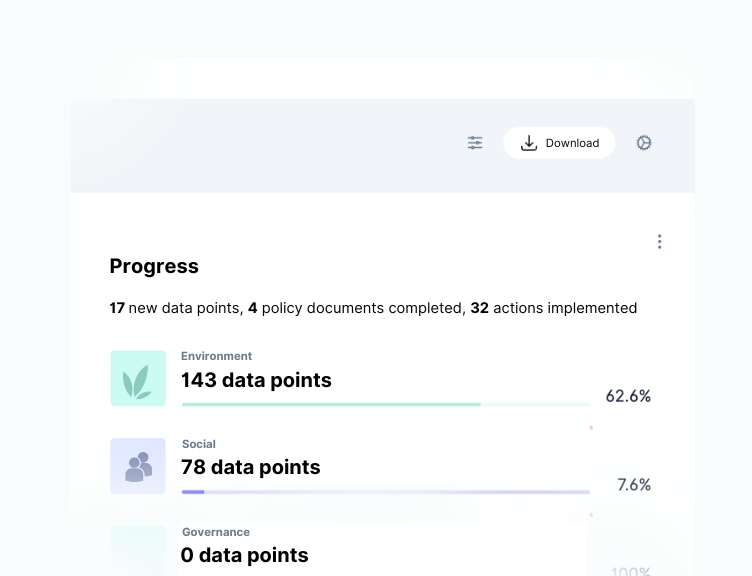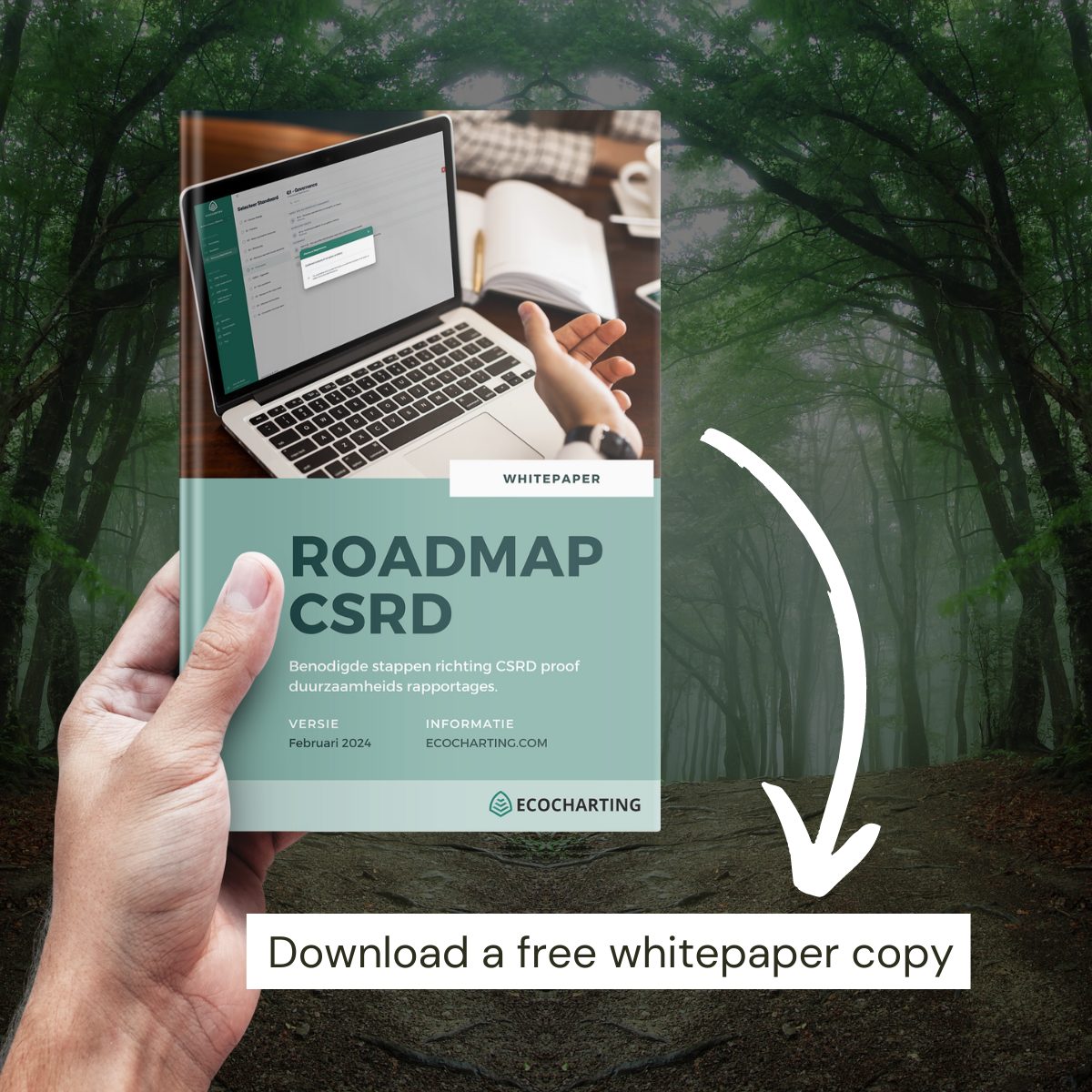Data collection for CSRD - an overview
Data collection for CSRD reporting can present significant challenges. Frequently, pertinent data is either inaccessible, dispersed across numerous sources, or compromised in terms of quality. With the implementation of Ecocharting, the process of collecting CSRD data can be streamlined and efficiently managed.

Trusted by LEADING EUROPEAN companies










Data collection for CSRD reporting
To make sure CSRD achieves its main goal of making sustainability transparent and comparable, companies should report quantitatively on their progress by keeping track of measurable KPI’s. Where to start?
For certain CSRD topics such as Own Workforce, companies often maintain records of key performance indicators (KPIs) within their respective systems. In such instances, Ecocharting can assist in extracting pertinent data and integrating it with narrative datapoints essential for CSRD, such as policies, actions, and targets related to each topic.
However, for many topics, KPIs may not currently be monitored. In such cases, it is feasible to associate a predefined CSRD metric with the topic and monitor it through Ecocharting. Additionally, companies have the flexibility to establish their own KPIs tailored to their specific requirements or circumstances if the predefined CSRD metrics are inadequate.
Ultimately, the objective is to ensure that each of the 80+ ESG topics relevant to your firm is being diligently monitored. Ecocharting serves as a facilitator in achieving this goal, ensuring trustworthy monitoring practices.

Get a demo account
Get a demo account to gain direct access to the Ecocharting CSRD platform. Explore its comprehensive functionalities:
- Stakeholder engagement
- Double materiality assessment
- ESG data collection
- Reporting & publishing
In practice
How to streamline data collection

Before starting data collection, a comprehensive double materiality assessment is required to identify material topics. Once the relevant datapoints have been identified, a GAP analysis can help to show which information is already available in your organisation and where it is stored.
Consequently, further aggregation can be seamlessly executed by linking various data sources through Ecocharting. In addition to numerous metrics, data collection also encompasses the identification of textual information, commonly referred to as narratives, a task made intuitive through Ecocharting’s capabilities.
ESG topics
Possible datapoints
Types of impacts & scores

CSRD & Ecocharting
Join our next webinar to learn about CSRD and how Ecocharting can help you in your journey towards sustainability.
- Roadmap CSRD & the fit with Ecocharting
- Ecocharting software: setup, costs, timeline
- Double materiality Deep Dive
- F.A.Q. and Q&A
Ecocharting Software
Get started and start data collection for CSRD reporting
In our software, all CSRD data points are encompassed and seamlessly integrated. Get started with CSRD data collection using Ecocharting.
Integrate data sources
Upload data and connect real-time information through Ecocharting. Upload documents to underpin narrative datapoints (textual data).
Standard API connection
Ensure a single source of truth by connecting your data sources through our Standard API connector.
Data quality & process tracker
CSRD demands a description of data collection processes and quality monitoring of information. Ecocharting specifically tracks these ‘metadata’ for reporting & auditing purposes.

Roadmap CSRD
Our most up-to-date whitepaper. Discover a complete overview of the regulations and the steps to be taken:
- How to engage with whom and when?
- Which datapoints belong in the report?
- How to determine materiality?
- What is the role of digitisation and automation?
Start CSRD preparations today using Ecocharting.
Get access to our comprehensive CSRD platform by creating your personal demo account today.



